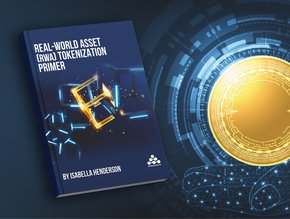Intelligent banking: Why AI is shaping the future

Artificial Intelligence - or AI - has transformed the financial services industry globally. In just a few short decades, the sector has become reliant on the technology that powers its data aggregation, security, authentication, products and services. We talk to Arun Krishnan, SVP, EdgeVerve and Global Head of Engineering for Finacle - a leading fintech based in Bangalore, about what the future of banking will look like.
Q: How do the latest AI technologies look and perform compared to the first-generation wave, and how far has the technology come?
The initial scope of AI in banking appeared synonymous with mathematical modeling to derive insights. Since then, AI adoption has permeated more facets of banking with various use cases such as advanced fraud detection, customer identity validation and authentication, including voice-based mechanisms etc. Banks and credit unions are rapidly automating and improving various functions with robotics and artificial intelligence.
We will start seeing the shift towards more machine learning in elevating human impact across the entire organisation. For instance, machine learning can extract behaviors of a top-performing teller and identify their unique approaches to elevate more tellers to become better sellers. Machine learning can enable democratisation of best practices and ensure continuous learning.
Intelligent DevSecOps, self-healing systems, security, and adaptive operations is another area where we are likely to see AI’s impact in the near future.
AI and ML are already starting to drive a superior understanding of customers’ habits and preferences, enabling banks to deliver personalization at scale to create superior customer experiences. Going forward, explainable AI will emerge as a key factor in banking. While banking requires deep learning models, being able to explain the rationale behind investment decisions is important.
Q: Why is AI becoming increasingly popular in the field of personal finance? The use cases for AI in personal finance are increasing. Which areas do you think have had the most significant role in the new normal?
The ability to offer differentiated and personalized customer experiences will be a valuable differentiator in personal finance. AI lies at the heart of creating personalized experiences and offerings, so it is bound to have a plethora of use cases. For instance, AI can create personalized loan offerings based on details such as credit history, shopping behavior, and other parameters. Customers will no longer need to choose from standard off-the-shelf products. Instead, each customer will have access to a unique offering that is designed for them.
AI-powered lending decisioning is another trend that we are already witnessing. In addition, portfolio management and retirement planning via AI can help build intelligent investment plans that are uniquely tailored to a person’s goals, risk appetite, and other characteristics or preferences.
Q: With great technology comes great responsibility. What kinds of regulations can we expect to see, and which areas require greater regulation to keep customer data from being exploited?
As the threat landscape evolves, we can expect to see the scope of regulation to move beyond protecting banking data and personally identifiable information (PII) such as social security numbers or passport details. With its ability to detect patterns even among large volumes of data, AI can potentially detect unique ‘behavior fingerprints’ based on data such as online purchases, websites visited, and even a person’s typing style. These can help banks identify individual customers, leaving them susceptible to loss of privacy.
Therefore, the regulation would need to evolve to acknowledge and protect the evolving definition of identity. There are four key trends that we foresee:
- Explainable AI: While deep learning models in AI can help automate complex decision-making, regulations will require that the decisions are explainable. Therefore, explainable AI will emerge in importance.
- Secure Digital Identity: Given that a majority of transactions will move online, protecting a person’s digital identity becomes paramount. Regulation will need to balance convenience and securing identity.
- Traceability of transactions: While information could change hands several times during the course of a transaction facilitated by AI, regulation will require that the data be traceable and verifiable at all times.
- End-user control: End users will demand and deserve greater control and choice over how their personal data is shared with businesses and other entities. So, we can anticipate stronger regulation to support this need.
Q: How is AI in the financial services sector impacting incumbent banks?
Incumbent banks have a clear and present opportunity to choose from a large pool of use cases to decide how they can use AI to their advantage. In addition, they have a ton of customer data that they can leverage to derive insights and create value for clients.
Identifying their top use cases and using available data with enabling AI technologies can then guide banks’ investment decisions.
Of course, incumbent banks will also need to reimagine their operations, break away from legacy processes, siloed thinking, etc. to fully exploit the advantages that AI brings.
Given that AI is still evolving, early adopters stand to gain a significant advantage and experience. Banks that do not engage until everything is clear may risk falling significantly behind their competitors in the long-term.
Q: Equally, what do these technologies mean for the growing fintech sector, and do they pose any significant challenges?
AI offers several disruptive opportunities for fintechs in terms of innovative new business models for lending, payments, rewards, etc. While these pose a clear threat to incumbent banks such as enabling an over-the-top player relegating them to a backend role, there is also a sea of opportunity to be tapped by banks by partnering smartly with fintechs.
Banks have the advantage of an existing large customer base and relationships while fintechs bring in the technology/AI prowess. With a conscious strategy, this is an amazing time to create a win-win situation for banks, fintechs, and customers at large.
Q: Has COVID been a driving factor in increased AI use? If so, why?
COVID-19 has certainly been an accelerator when it comes to driving AI adoption in banking. Governments were affected by COVID-19 and had to become innovative quickly. Offering financial assistance in the form of relief loan packages designed to help small businesses navigate the crisis and a growing number of insurance claims, banks and insurance providers were inundated with large volumes of loan application requests and insurance claims, driving home the need for AI to enable better decisions and address the need to reduce waste, fraud, and abuse.
COVID-19 thrust banks willingly and unwillingly to become digital faster. This meant less human dependency and hence accelerated the willingness to adopt AI wherever possible. Even as the world comes out of the pandemic, like many other changes triggered by the pandemic, we can expect this change to be irreversible.
Q: What AI trends will we see emerging in the next few years in financial services, and why?
Conversational banking will help deliver tailored experiences by progressing from elementary conversations to automated ones learning from the previous interactions with the end-user. With the pandemic driving home the importance of ‘low touch’ infrastructure and ‘zero touch’ services, bots will become increasingly ubiquitous in banking. Intelligent document handling through the use of computer vision and intelligent character recognition will also gain importance.
An IDC report estimates that worldwide spending on AI systems will touch $110 billion in 2024, more than doubling from $50.1 billion in 2020. A recent EY survey found that 64% of financial institutions are planning to leverage AI technologies extensively within the next two years.
From generating new revenue streams and automating processes to acquiring clients, managing risks and delivering superior customer service, AI is expected to become a key success lever for banks in 2021, including digital channel enhancements, product management, operational improvements, customer support, fraud detection, exception handling, operational efficiencies and beyond.
No aspect of a bank’s work will remain untouched by AI in the years ahead. That said, we can expect to see the rise of embedded analytics powered by explainable AI.
With thanks to Finacle’s Arun Krishnan, SVP, EdgeVerve and Global Head of Engineering for the AI in banking, for his insight into banking and cutting-edge technology.







